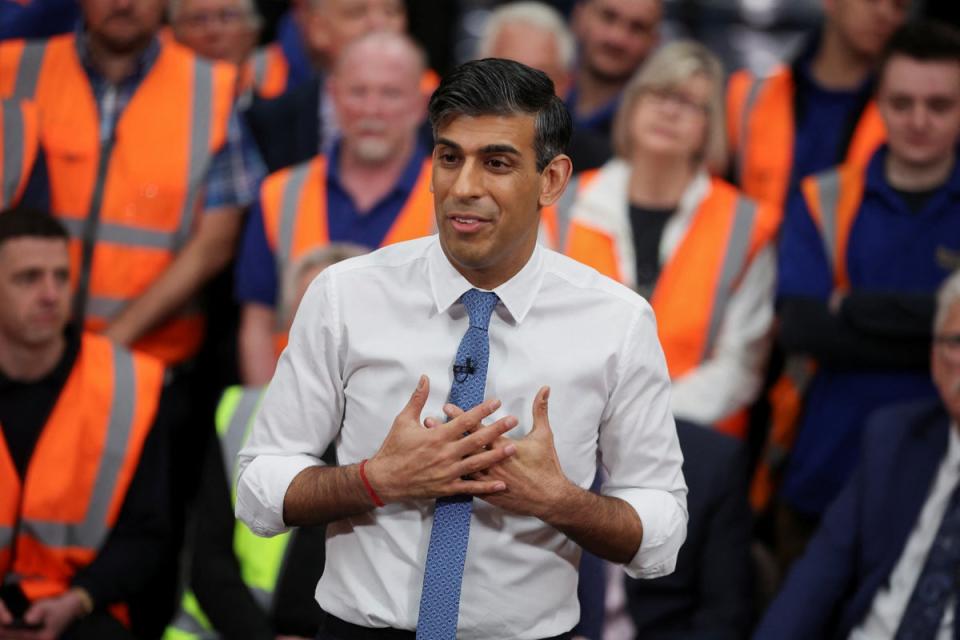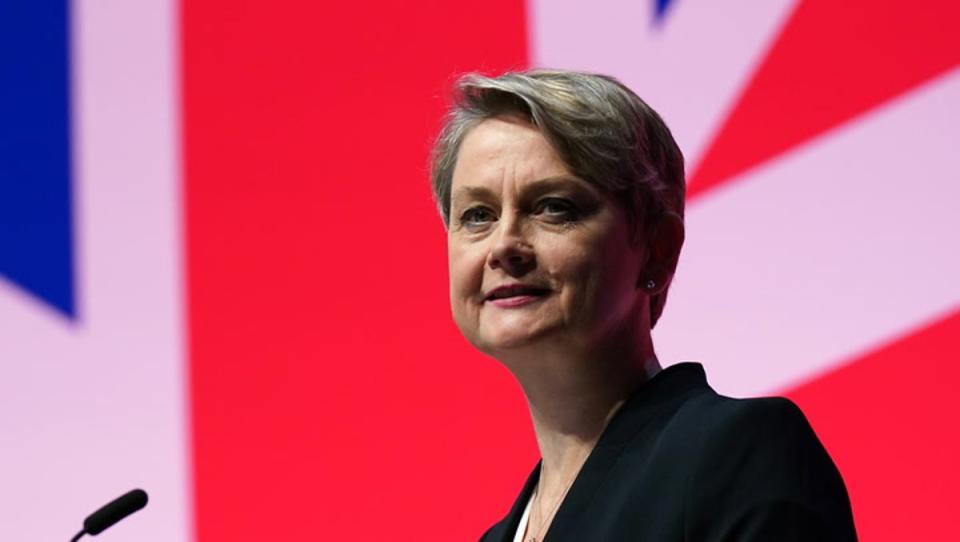Election headache for Rishi Sunak as UK population grows by 685,000 in past year
The UK’s population grew by 685,000 people in 2023, a drop from record high net migration in 2022, official estimates show.
The latest figures, published a day after Rishi Sunak called a surprise general election on 4 July, will feed the debate about immigration – a key campaign battleground.
The Office for National Statistics said that it was too early to tell if the 10 per cent drop in net migration year-on-year was the start of a permanent trend, but pointed to signs that fewer people are applying to come to the UK on healthcare worker and student visas.
Net migration to the UK hit a record 764,000 in 2022. Despite the provisional 2023 figures representing a 10 per cent drop year-on-year, they are still historically high.
The 2023 figures mark the third year running that overall net migration has exceeded the pre-Brexit, pre-Covid levels of roughly 200,000 to 300,000.
Migration experts at the University of Oxford said that the small drop from 2022 was fuelled by lower immigration on humanitarian visas, such as Ukrainians and Hong Kongers, and fewer non-EU students.

Labour’s shadow home secretary Yvette Copper said the figures demonstrated “Tory chaos and failure on immigration”.
“Net migration has more than trebled since Rishi Sunak and his party promised to get it down at the last election,” she said.
More than four out of 10 people moving to the UK for work-related reasons last year came from India or Nigeria, most commonly in the health and social care sector.
The number of non-EU workers moving to the UK for work rose in 2023, by 146,000 people. Work visas for non-EU citizens are now the largest contributor to net migration by some distance, experts said.
Work visas made up 41 per cent of non-EU immigration in 2023, whereas asylum claims made up just 8 per cent.
The statistics on net migration were published along with Home Office figures on refugees claiming asylum in the UK. The government stats showed that 14 per cent fewer people claimed asylum in the UK in the year ending March 2024, in part due to a decrease in claims from Albanian small boat arrivals.
The data also showed a significant increase in the number of asylum decisions being made by Home Office case workers. However, despite this, the backlog of applications still stands at 119,329 people.
The number of people who were actually successful reached its highest level in 40 years, in part driven by the boost in decision making. A record 68,564 people were granted refugee status or other types of leave to remain in the year to March – the highest number for any 12-month period since records began in 1984, figures showed.
Lib Dem home affairs spokesperson Alistair Carmichael, said: “No matter how the Conservatives try to twist the truth, the asylum backlog remains sky-high. Rishi Sunak has failed to deliver on his promise to tackle the asylum backlog, just like he failed to stop the dangerous Channel crossings.”
Marley Morris, at the Institute for Public Policy Research, said: “Net migration remained exceptionally high in 2023 but is set to fall, possibly quite sharply, in the year ahead.
“The reality is there are some tough choices on immigration which will need to be grappled with, whoever wins the upcoming election.
“Sharp falls in visa grants will require the government to urgently address the structural issues underpinning recent high migration – both our model for high education and poor conditions in the social care sector.”

Labour’s Ms Cooper added: “14 years of Conservative failure on both the economy and immigration has led to around a 50 per cent increase in work migration in the last year alone because they have disastrously failed to tackle skills shortages.
“The Tories can’t even manage to clean up their own chaos. Labour will bring in proper plans to link the points-based immigration system with boosting skills here at home.”
Home secretary James Cleverly insisted on Thursday that the latest statistics show that the Conservatives plan was “working”.
He added: “We must stick to the plan, not go back to square one.”
Dr Madeleine Sumption, director of the Migration Observatory, said that early data on work and study visas “suggest we may see a bigger decline later in 2024, following the recent policy changes”.
Health and social care workers have recently been restricted from bringing partners and children to the UK with them when they come for work.


